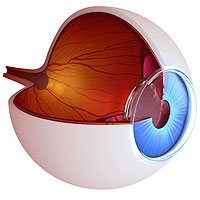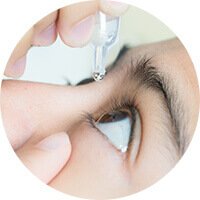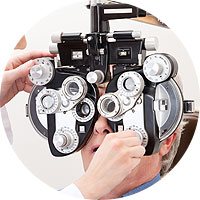Cataracts are most often associated with old age. With age comes many changes, especially with our eyes. Cataracts develop in most people sooner or later. However, it’s more common than you might think to develop cataracts at a young age.
Cataracts Before 50?
Chances are, when you think cataracts, your picture a person in their 60s or 70s. You aren’t far off from the truth, however, there are many things other than age that can cause early cataract development.
One factor in cataract development: diabetes. With diabetes comes a host of other health problems, one of them being an increased risk of cataracts. Uncontrolled blood sugar levels take a huge toll on the eyes, making early cataract development a real possibility.
Another cause of early cataracts is severe trauma to the eye. Penetrating injury, concussive force, electric shock or radiation can all cause early onset cataracts.
Some children are born with cataracts, or develop them within the first few years of life. These are called congenital cataracts. Approximately half of congenital cataract cases are genetic. These are quite rare, but it is important to attend scheduled pediatric eye exams to catch them early.
Lastly, there are many risk factors what make it possible to develop cataracts early. Smoking, obesity, extensive exposure to sunlight, high blood pressure and a family history cataracts are all risk factors associated with early onset cataracts. Some studies suggest that vitamins C and D deficiencies can contribute to cataract development.
What are the symptoms?
At first, early onset cataracts are not entirely noticeable. The first thing most people notice is that their vision is getting steadily blurrier. Most people just chalk it up to the natural decline in vision as we age or to excessive screen usage. At this point, your cataracts will be easily diagnosed by an eye doctor.
As cataract progress, patient’s begin to notice that colors are less bright, and there is a yellow tint to their vision. Some may even notice slightly distorted vision.
Once cataracts have progressed to the point that it becomes difficult to complete daily activities, or driving becomes dangerous, doctors will suggest surgery. Cataracts are only treatable through surgery.
Early Detection for Blindness Prevention
Cataracts eventually lead to blindness when left untreated. This is why we encourage regular eye examinations, even in your 20’s and 30’s. Early detection allows your eye doctor to keep an eye on development, help with visual aids and decide when is the best time for treatment.
Cataract surgery is quite simple and easy to recover from, requiring little to no downtime. Plus, during cataract surgery, our doctors are able to correct common refractive errors such as astigmatism, myopia and hyperopia. So, after cataract surgery, chances are your vision will be even better than before you had cataracts!
If you have noticed a decline in vision and have not been to an exam, call Eye Care Specialists in Scranton today! If you have been diagnosed with cataracts and are interested in exploring your correction options, book a cataract surgery consultation with us. Life is too short to deal with blurry vision. Contact us today!

















